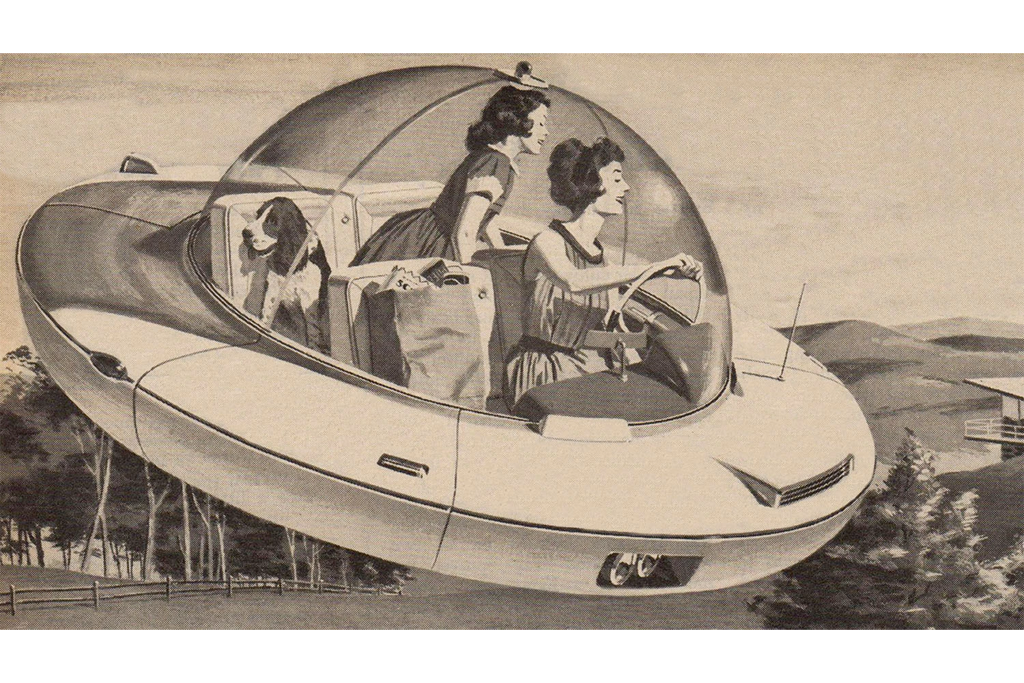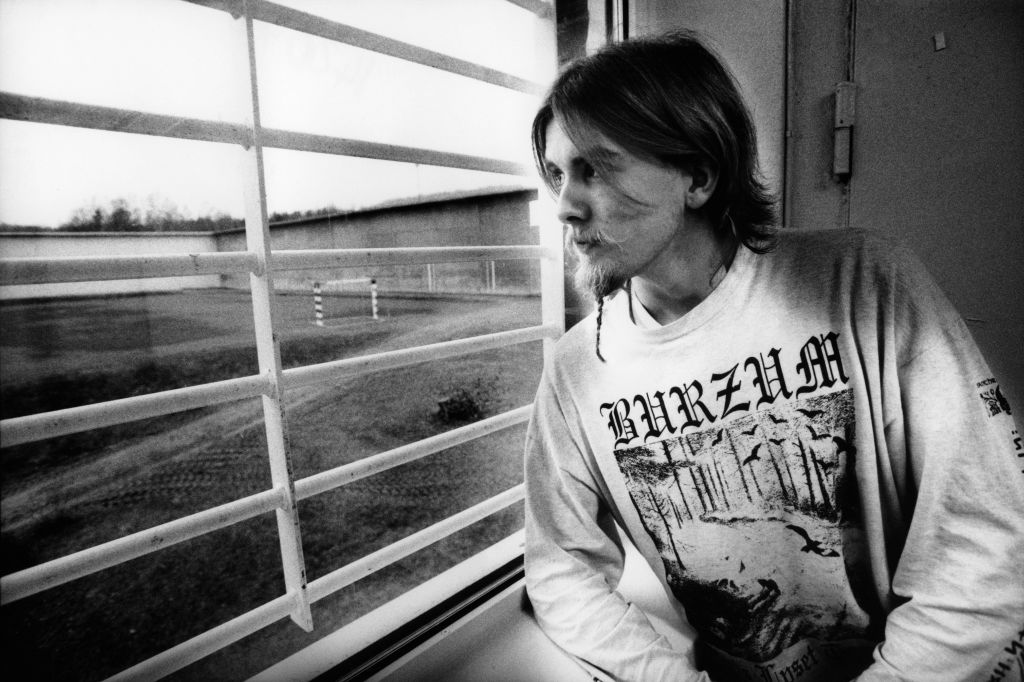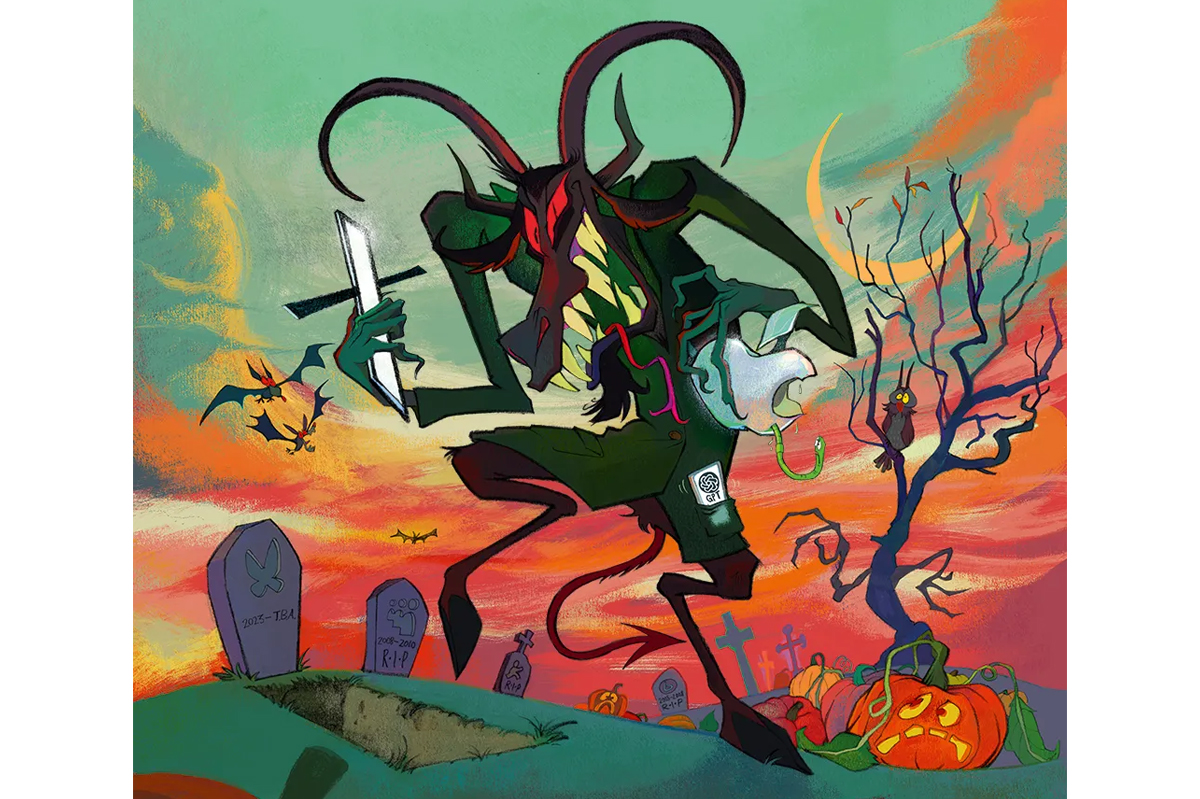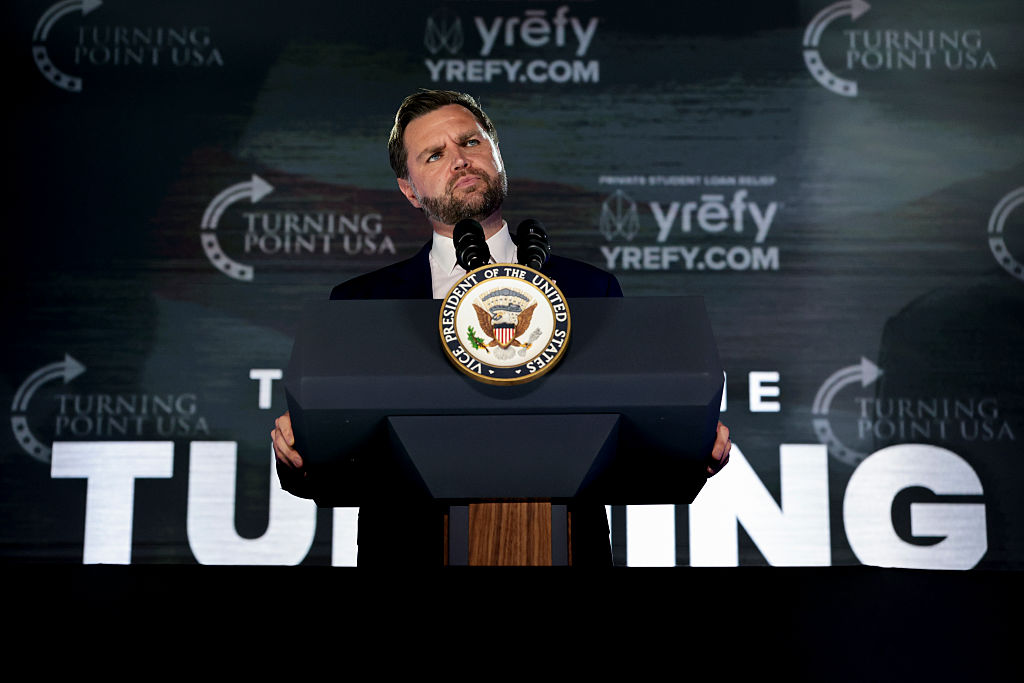MICHAEL GOVE: In your book, We Who Wrestle With God, you work intimately with Bible stories to bring out their meaning, their relevance and their importance. Why should anyone read the Bible?
JORDAN PETERSON: The simple answer is because you have to have your story straight or you go off course badly. One of the strange intellectual events in the past sixty years is that the presumptions of the Enlightenment have been demonstrated to be false. The empiricists, or really the data-oriented people, believed for a long time that we could arrange the world around us merely as a consequence of the facts. The problem with that presumption is that there are an infinite number of facts. If they just lie there, unorganized, value-free and in no hierarchy, they can’t serve as a guide. You have to organize them and prioritize them in your attention and your actions. A description of the way facts are prioritized — that is a story. This is a revolutionary realization because it means “the story” is inescapable. The postmodernists concluded, erroneously and precipitously, that the story that orients us is one of power. That’s wrong because power is an unstable basis for psychological integration and for social unity. Biblical stories make the insistence that the fundamental story is one of unity and also one of voluntary sacrifice. That is a very different story than that of power or its twin, a kind of demented hedonism, which also leads to psychological and social disintegration.
MG: Some would argue that if you engage with Milton or Dostoyevsky or Victor Hugo, or with George Eliot or Jane Austen, that these authors tell compelling stories about unity and about how a moral life should be led. What is it that is unique about the Bible that means it contains within it stories that are more compelling and more powerful than even the richest voices in the Western canon?
JP: One very straightforward answer is primacy of position. The deeper an idea is in a given culture, the more other ideas are predicated on it. All the people you described were intimately familiar with the biblical writings, and their worldview was shaped in the finest details by them. If you read all the great texts in the Western canon except the Bible you’d pretty much be able to fill in all the gaps, so to speak, but that’s because the biblical stories would be reflected second-hand in the texts.First of all, the Bible presents a series of hypotheses. One is that there’s an underlying unity that brings together all structures of value. The second claim is that there’s a relationship between the human psyche and that unity. And the third claim is that the unity can be characterized. The Bible is a sequence of characterizations of unity and each of the main biblical stories casts that unity in a different light, accompanied by the insistence that, despite those differences, what is being pointed to is one animating principle. As far as I can tell, that’s correct. In the story of Noah, God is characterized as the voice of intuition that comes to the wise when they see trouble coming. Then in the story of Abraham, God comes to him as the voice of adventure that comes even to the unprepared. The juxtaposition of those two stories implies that the spirit of adventure and the spirit of wisdom are the same thing. They’re manifestations of the unity that lies at the bottom of everything, or at the pinnacle of aspiration. Those are parallel metaphors. A lot of the atheist argument in the modern world misses the mark because the God that’s being disbelieved is never defined. Or if it is, it’s brushed off as foolish — the equivalent of Santa Claus the Great, the old man with a beard in the sky.
MG: In We Who Wrestle with God, you look particularly closely at the Old Testament. Generally in modern discourse when people respectfully refer to the Bible from outside the Christian church, they tend to look to the Gospel and to St. Paul for contemporary moral lessons. Why do you think it’s important to look closely at the Old Testament from the perspective of someone who is outside the church?
JP: The Old Testament stories lay the foundation for the deep understanding of the message that’s encapsulated in the New Testament. Christ himself said that he was the embodiment of the law and the prophets. It’s a remarkable thing for anyone to say. On the face of it, it’s utterly preposterous. But that preposterousness is belied by its simultaneous brilliance. It means there’s a spirit that operates in the Old Testament cultures that gives rise to the law, and that law and spirit is a reflection of this underlying unity which is embodied in the ultimate self-sacrifice of Christ. You can’t understand any of that unless you know the Old Testament stories. It’s not optional. That doesn’t mean it’s without its challenges. Richard Dawkins, for example, characterizes the God of the [Old Testament] as a kind of a fascist terrorist. What Dawkins doesn’t realize is that he’s making the same argument as the postmodern leftists. He’s making the argument that the fundamental spirit of the patriarchy is oppressive. I don’t know, Richard, it isn’t obvious to me that you want to side with those people. You can see what they’re doing to your own discipline and to the universities, much to your horror.
MG: Richard Dawkins’s intellectual evolution (no pun intended) is fascinating because he’s become more and more a defender of a morality that Christians would understand, while at the same time vehemently denying that there can be any supernatural element to it. For Christians, at the heart of Christian belief and morality is the fact that the supernatural and the natural coincided in the birth of Jesus — not just a symbol, but the reality of love and compassion. What about that belief do you think is useful? Or what about that would you contest?
JP: I would say that the supernatural and the natural are constantly operative in our lives. If we’re diligent materialists and we delve into the bottom of the world, we find at the end of our striving an impenetrable mystery — the mystery of the quantum world, where things behave in a manner that’s so unlike the way they behave at our natural level that we can’t even understand the phenomena. The biblical claim is that the value structure we necessarily inhabit ascends to a point that’s equally mysterious. Then that’s characterized in various ways. It’s characterized in the person of Christ. It’s characterized in the representations of Yahweh in the Old Testament. What that means is the finite — that would be us — is in a relationship with the infinite. There are elements of that relationship that are supernatural, in that they supersede our understanding of the deterministic processes that make up the natural world. Materialist cosmologists require a miracle to get things going. Their claim is that the laws of nature break down at the singularity that constitutes the Big Bang. Any process that operates outside of the laws of nature is supernatural by definition, so they get their miracle. The strange insistence of the biblical text is that the world is founded on sacrifice. That’s the miracle. That’s a very different way of looking at things, but I also think it’s accurate because there is some relationship between conscious perception and reality, in that comprehending reality in the absence of a conscious perceiver seems to be impossible. Reality itself depends on attention in some way we don’t understand. Attention is a deeply sacrificial process. What I mean by that is: we can really only attend to one thing at a time, which means when we give something our attention we’re elevating one thing to the highest position in our hierarchy of value. While we’re doing that, we’re forgoing all else. That means the attention that makes the world a reality is based on sacrifice. There’s an extension of that, too, of course, which is that society is predicated on sacrifice. If everything’s all about you, then you’re not social. To be social means to sacrifice. And the perpetuation of the human race depends on sacrifice because the very act of being a parent, if it’s done at all well, involves sacrifice. The West has forgotten this. That’s why we’re in a birthrate catastrophe. When a society stops prioritizing infants, it’s doomed.
MG: Would you call yourself a Christian? And if not, why not?
JP: I would say in the deepest sense, yes. But I’m not a typical Christian because I’m striving for understanding above all. I suppose people might pillory me as agnostic, but that’s not true because I don’t believe that the proper relationship between this underlying unity and myself would be established as a consequence of intellectual conquest. I’m a new kind of Christian. How about that? The manner in which I’m discussing these stories in my work has attracted a wide attention from precisely the people who were most disenchanted with the approach of the classic churches.
MG: Notwithstanding the failures or weaknesses of the established churches, do you go to church? Do you pray?
JP: I’m going to church regularly with my wife. She’s become a very committed Catholic. I found that my attitude toward going to church changed substantially after I was very seriously ill for about three years. Any time I can sit for an hour and not be on fire is a perfectly fine time as far as I’m concerned, so I didn’t have the patience for the longest time to appreciate the peace of a church ceremony. But that’s changed. Also, I’m very happy to accompany my wife because I’ve watched what her conversion has done for her and it’s been nothing but good. So yes, I’m attending. And I’m not a critic of the churches. The fact that the Catholic Church has managed to sustain Christianity for 2,000 years is nothing short of miraculous. I would say the same thing about the Protestants who brought literacy to the entire world and the Orthodox whose tradition-based worship has proved remarkably resistant to the idiot postmodernists.
MG: One of the commitments that you have made is to support a new organization, ARC — the Alliance for Responsible Citizenship [backed by The Spectator’s proprietor, Sir Paul Marshall] — in its search to provide a better story in a number of areas of public policy. Why? What is the message that you believe that ARC should get across?
JP: One of our principles is that our endeavor is to be invitational. If you tell people a good story, then they’re enthusiastically on board with it and enthusiastically means to be possessed by the spirit of God. The zero-sum Malthusian nightmare story that’s been foisted on us by the globalist, green, utopian, virtue-signaling, manipulative elites is not invitational. It is a story that will produce nothing but the most petty tyranny that you can imagine, regulating every single thing that people do. How much water their toilet uses when it flushes; how much water comes out of their showerheads; how much electricity they’re going to be able to use or not use; how much carbon they’re going to be able to emit. This is a catastrophe. We’re seeing the terrible results of it in the UK and in Europe. We [at ARC] are trying to formulate a more attractive story without being naively optimistic. We believe that the West should be striving to drive energy costs down to the lowest possible level. If renewables can play a part in that then more power to them, so to speak. But the fact that nucle- ar has been off the table for fifty years is appalling. It comes from putting the wrong thing at the highest place. We’ve devolved into nature worship, which is a brutal theological enterprise. People should conduct themselves as wise stewards of the environment — obviously we have to take care of where we live. But the evidence is very clear that if you elevate people economically to the point where they’re generating about $5,000 a year in aver- age GDP, they start to become confident enough in the future to take a long-term view of survival. They start to become, in the modern parlance, environmentally aware. If you’re scrabbling around in the dirt looking for the dung to burn for your next meal, the probability that you’re going to dispense with anything like a long-term view is essentially 100 percent. I learned this, paradoxically, when I was working for a UN committee looking at sustainability. I found out that there was overwhelming evidence that the best way to make the planet green is to eradicate absolute poverty. Why would we not do that? One answer would be: “We want poor people to suffer so that we have someone to feel superior to.” And if you don’t think people are capable of that, then you’re the naive optimist.
MG: What are the better stories that you want to tell about the nation, or about our culture, or about our economy, or about our politics?
JP: The family has to be at the center of social policy. And it can’t just be any old family because any old family is not a family. I think (and this is warranted by the relevant developmental literature, by the way) that the nuclear family — man, woman and child — is the minimal viable family. If you fragment beyond that or you alter that structure, you’re promoting a suboptimal solution. That doesn’t mean that people who’ve been unable to make the ideal viable in their lives should be damned to perdition. It’s a rare person whose family hasn’t been touched by divorce or single motherhood or widowhood. But that doesn’t mean that we’re going to sacrifice the ideal and that an idiot plurality can replace it. We know, for example, that there’s virtually nothing more devastating to a child in the long run than fatherlessness. Almost all the social evils that leftists clamor about nonstop can be traced in large part to the cascading consequences of fatherlessness. I would also point out that the alternative to long-term, stable, monogamous pair bonding is short-term, hedonistic, mutual sexual exploitation. It’s exploitation because the personality characteristics of those who prefer short-term mating strategies have already been delineated. It’s not a pretty picture. The people who prefer the hedonic, one-night-stand style of relationship are Machiavellian, which means they use their language for manipulation. They’re narcissistic, which means they want unearned social status. They’re psychopathic, that means they’re parasitical and predatory at the same time. And they’re sadistic. So if you want to deliver yourself into the hands of a dark tetrad type, then you can put yourself on the short-term mating market and introduce yourself to all the hyperselfish monsters that you can. Entertain until you’ve had your fill! That’s not a wise strategy, especially for women.
MG: Some would also argue that one other factor which is making life more difficult for families are changes in our economy.
JP: If you want to sort yourself out economically there isn’t any better way of doing that than to adopt a responsible ethos. Obviously people vary in their opportunity, but that’s a lot more complex than the bloody economic Marxist determinists would admit to. By the way, just because you’re poor, especially in the Western sense of poor, doesn’t mean that the whole world isn’t at your finger- tips. That’s the American dream, isn’t it? We see people like J.D. Vance, who’s now the vice president, living that out. Part of the story on the economic side is that you’re not a victim of circumstances. If you conduct yourself honorably, if you’re reliable, if you tell the truth and you have a sharp eye and are in a relatively functional state, you will be rewarded and you will gain economically. All the societies of the world that people are inclined to migrate to are characterized by a society that still rewards competence. The basis of competence is honesty and reliability.
MG: What’s your reflection on the political trends in the New World — in the US and in Canada — and what about the situation that we find ourselves in in the Old World?
JP: I pray there’s still some residual leadership lurking in the dark heart of the decimated Democrats and that one of them will step forward as a genuine leader to help them shed their obsession with the radical utopian left. The Democrats I’ve met — agreeable and empathic people — have no imagination for evil. They’ve allowed themselves to be devoured by the scuttling monsters of the diverse left. I’m a clinical psychopathologist and I know what the shadow of diversity looks like. It looks like sterilizing and mutilating children for moral reasons. The Democrats are completely blind to this. I’m pretty happy with the transformation in leadership in the United States, but that doesn’t mean it couldn’t go sideways if it wasn’t opposed by a credible opposition. There’s no reason to assume that the new crowd, especially in its fringe elements, will be any less susceptible to the blandishments of power than the old crowd. We need an adversarial system. The Democrats can’t provide that at the moment because they’re so fractured and so demented in their post- modern neo-Marxism that they think that men can become women. You can’t be any more confused than that. Hopefully they’ll sort themselves out. They have in the past. We’ll see what happens with [Elon] Musk and [Vivek] Ramaswamy and [Tulsi] Gabbard and Vance. They’re remarkable people: very diverse in their viewpoints and their personalities. The question is whether they can unify or whether we’ll see a continual clash of titans. As for Canada, we’ve been run by a juvenile narcissist for ten years. The consequence of that is that the richest province in Canada is poorer than the poorest state in the US. And that’s just the beginnings of what catastrophe has befallen Canada. We have racial riots now! Do you know how hard we had to work to have race riots in Canada? We’re finally on the same plane as our American cousins!
MG:It’s also been a year of elections here in Europe. Politicians, I should know, are flawed creatures. Which of those in power or bidding for power across the West do you admire or come close to admiring? And which of those do you think have done the greatest damage?
JP: The Conservatives in the UK need a desperate slap. They got one in the last election, but that doesn’t mean they’ve learned anything. I’ll speak bluntly: they allowed Boris Johnson’s obsession with his young wife to decimate the UK economy. Maybe that’s a bit on the cynical side, but I just can’t believe that the Conservatives fell for net zero. Any politician who talks about zero anything has instantly outed themselves as incapable of mature thought. It’s a foolish target because zero is perfect. There’s no way you can make anything perfect without sacrificing everything else.
MG: “Out of the crooked timber of humanity, no straight thing was ever made.”
JP: I get a kick out of Nigel Farage. He’s patterned his Reform Party after the Reform Party in Canada, which put the conservatism back in conservatism in Canada. Farage is a pretty odd conservative, but so is Pierre Poilievre in Canada. And obviously so is this preposterous pack of Republicans that now occupy the White House. I’m pretty much in favor of anyone who dares to question the DEI narrative and the climate apocalypse. That’s at least a start. On the free speech front in the UK…what are you people doing? “Non-crime hate incidents.” Really? That’s what you have your police doing? Jesus, you’ve lost your bloody minds! And then for Keir Starmer to come out (I thought it was an AI fake) and say: “Oh, you know that immigration policy we’ve been pursuing for ten years and the one that we persecuted everyone for exposing, that was all a big lie and everyone knew it. Sorry.” Kemi Badenoch basically made the same admission. Badenoch could be a force for revitalization on the Conservative side, but I’m just so appalled by what the Conservatives did when they were in power: the immigration mess and the net zero mess. I don’t see how you could fail more spectacularly than to fail on those two fronts simultaneously. The UK had better get its act together. I’m hoping it does, because the world would be much less without the UK and without Europe. My God, it would be a catastrophe to lose the European endeavor. I can hardly imagine anything worse.
This article was originally published in The Spectator’s February 2025 World edition.























Leave a Reply